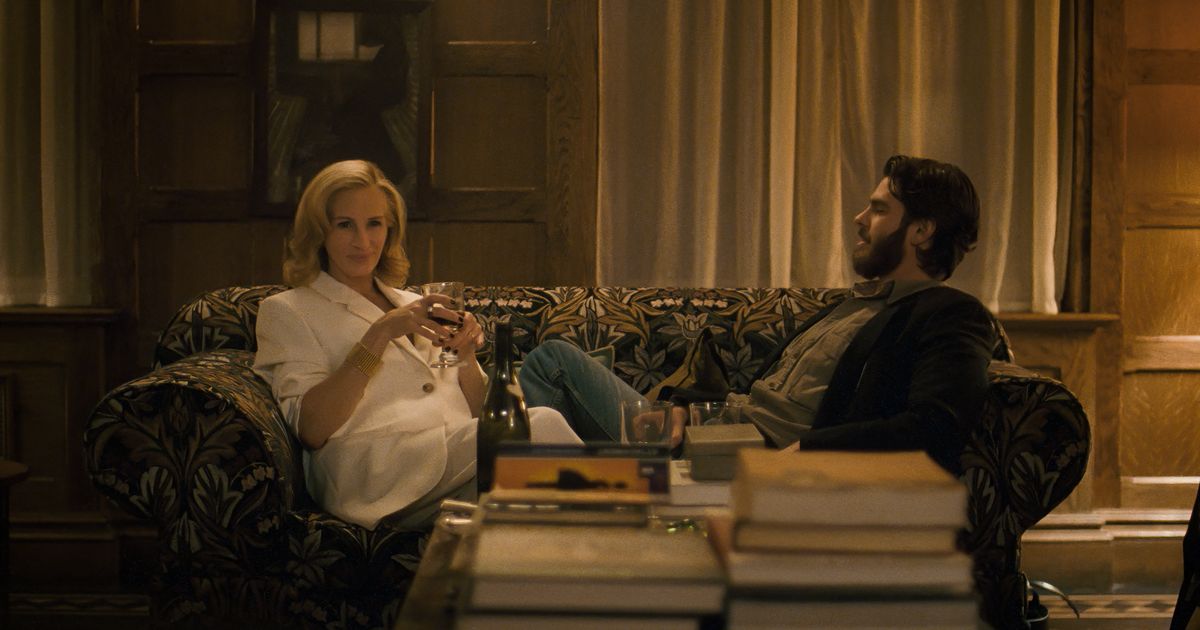
"This is how Allen's credits have looked for decades; even the way the cast and crew's names have been grouped and presented here is distinctly Allenesque, making the allusion clearer. Is it an in-joke? A provocation? Guadagnino's film seems to have been designed in a lab to tweak all our various sensitivities around cancel culture, so it really could be anything."
"The film follows what unfolds when a PhD student, Maggie Resnick (Ayo Edebiri), accuses a beloved philosophy professor, Hank Gibson (Andrew Garfield), of sexually assaulting her after a party thrown by Alma Imhoff (Julia Roberts), another professor in the department. Alma is entangled in the situation on multiple levels: She's very close to Hank, who might be not so secretly in love with her, and she's also close to Maggie, who might be slightly obsessed with her."
After the Hunt opens with white Windsor Light Condensed credits and soft jazz, evoking Woody Allen and signaling an Allenesque tone. The story centers on a Yale philosophy department where PhD student Maggie Resnick accuses beloved professor Hank Gibson of sexually assaulting her after a party hosted by professor Alma Imhoff. Alma occupies multiple roles as mentor, friend, and possible object of Hank's affection, while her psychoanalyst husband Frederik observes her tendency to pluck and elevate interesting people. The accusation triggers memories of an incident from Alma's past and intensifies competition for a single tenure slot. The film examines privilege, power, ethical ambiguity, and cancel-culture tensions within elite academic circles.
Read at Vulture
Unable to calculate read time
Collection
[
|
...
]